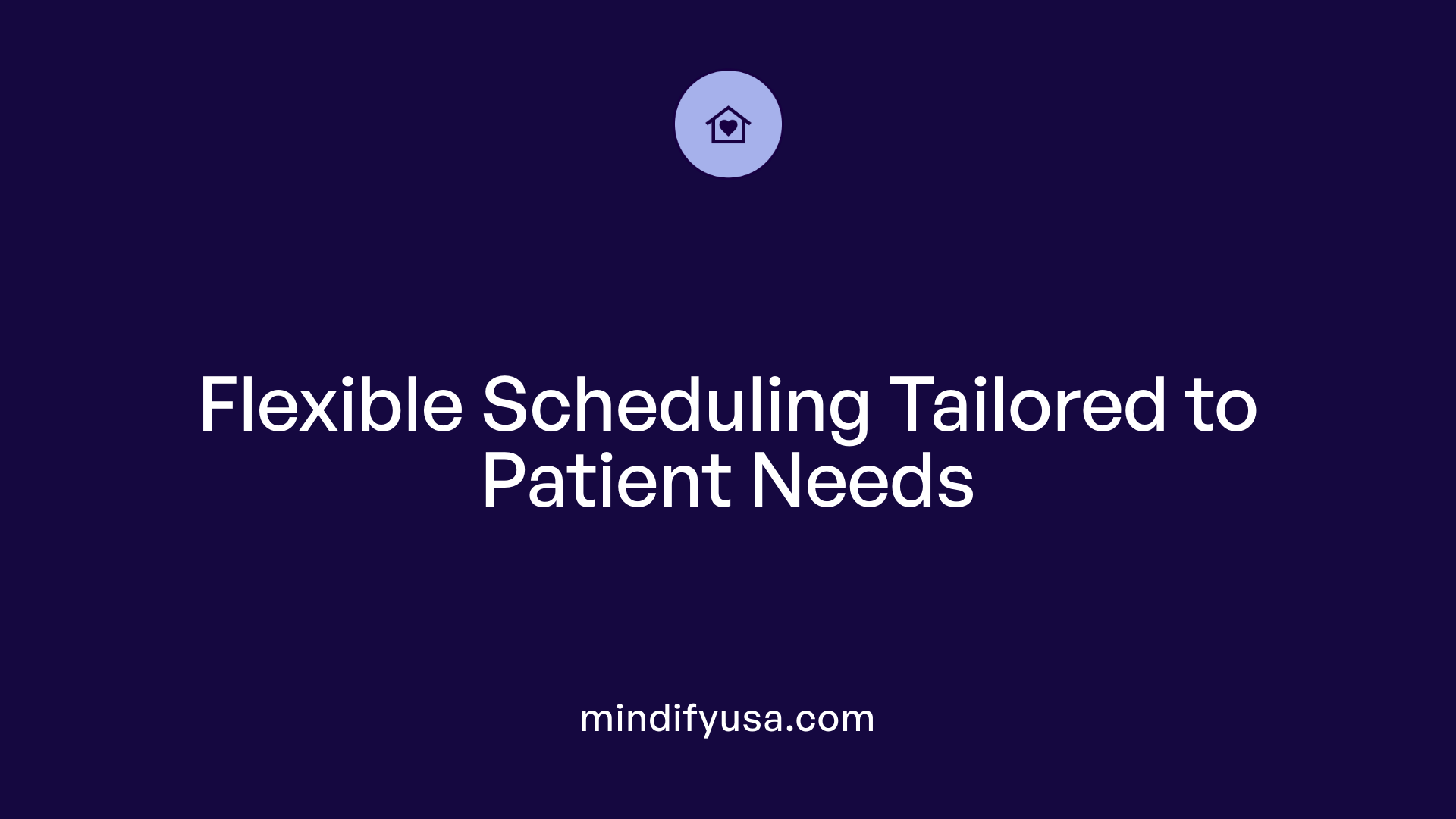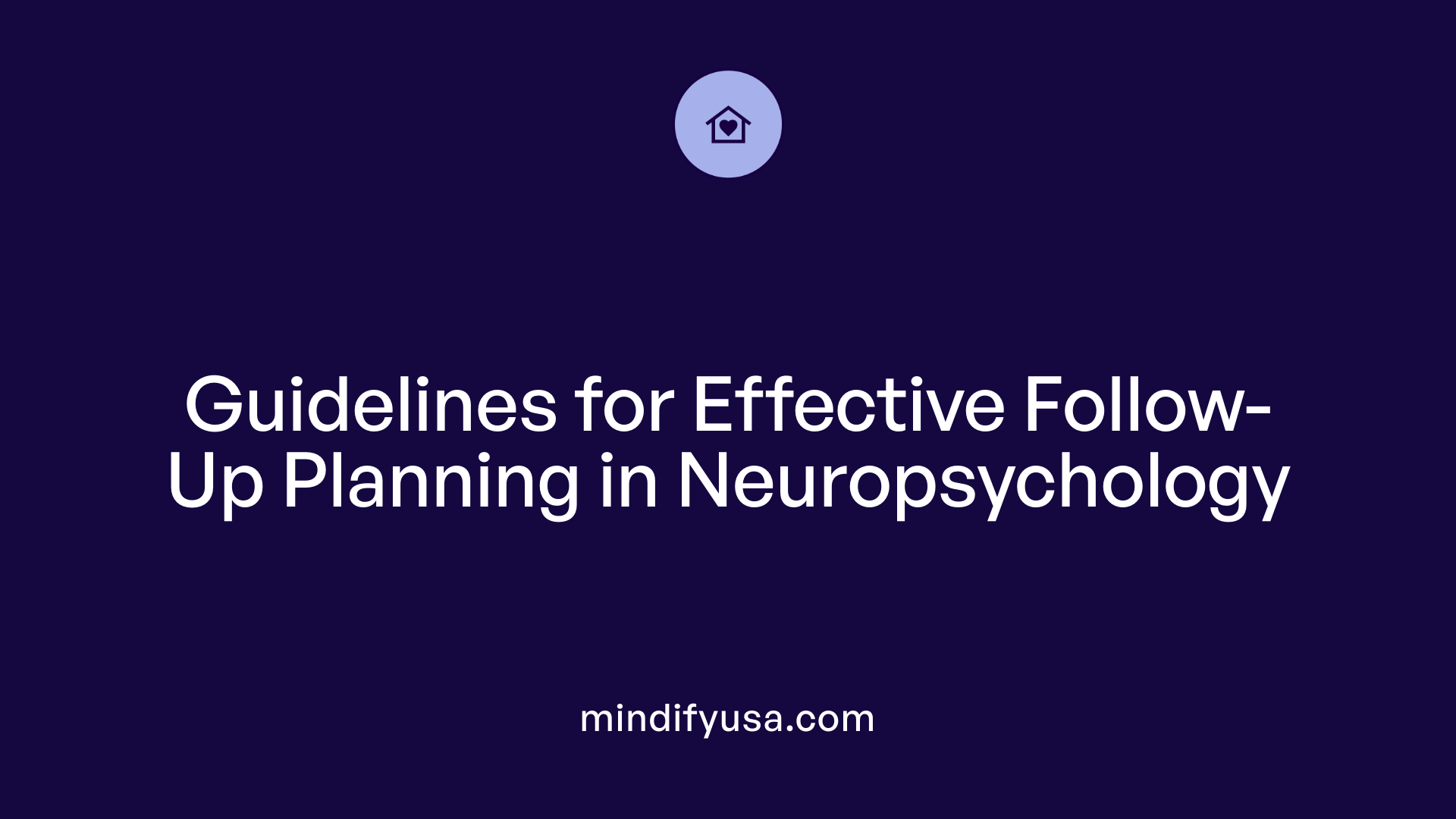Introduction to Neuropsychological Follow-Up Care
Neuropsychological assessments are pivotal in diagnosing, managing, and understanding various neurological and psychiatric conditions. These evaluations provide detailed insights into a patient's cognitive, behavioral, and emotional functioning, guiding clinical decisions and treatment planning. However, the question often arises: how often should these assessments be repeated? The frequency of neuropsychological follow-up evaluations depends on a variety of factors, including the patient's condition, the goals of assessment, and ongoing clinical observations. This article explores the key considerations for scheduling follow-ups, standard practices, and the overarching importance of ongoing neuropsychological care.
Purpose and Significance of Follow-Up in Neuropsychology

What is the purpose and importance of follow-up assessments after neuropsychological testing?
Follow-up assessments are a vital part of the neuropsychological process. They serve to monitor how cognitive and emotional functions change over time, providing valuable insights into a patient’s condition. These evaluations help clinicians see whether interventions or treatments are effective, identifying improvements or declines in functioning.
Regular follow-ups allow for early detection of issues such as cognitive decline, which is especially important in conditions like Alzheimer’s disease or after brain injuries. They enable timely adjustments to treatment plans, ensuring that care remains suited to the individual's evolving needs.
Moreover, these assessments guide rehabilitation strategies, educational support, and workplace accommodations. For example, if a patient shows persistent memory challenges, specific therapies or academic interventions can be recommended and tailored.
Tracking the progression or recovery of neurological disorders is another critical aspect. Whether a patient is recovering from a stroke or managing a chronic condition, serial assessments reveal progress or setbacks.
Overall, ongoing neuropsychological evaluation plays a key role in personalized care. It helps patients and healthcare providers understand the course of the condition and make informed decisions that improve quality of life. This continuous process supports adaptive strategies and ensures support remains aligned with each individual’s changing circumstances.
Typical Intervals and Scheduling of Follow-Ups

What are the typical intervals between initial neuropsychological assessments and follow-up evaluations?
Follow-up neuropsychological assessments are generally scheduled based on the individual's specific needs and circumstances. Usually, they occur anywhere from several months to once a year after the initial evaluation. This flexible timeframe helps clinicians monitor changes in cognitive, emotional, and behavioral functions over time.
The frequency of follow-up assessments depends on factors such as the severity of a condition, treatment response, and diagnostic goals. For example, patients with mild cognitive impairment might need evaluations every 12 to 18 months, while those recovering from brain injury may require more frequent check-ins.
In some cases, assessments are conducted sooner if rapid changes or concerns emerge, ensuring timely adjustments to treatment plans. Conversely, for stable conditions, follow-ups might be less frequent, spaced out over longer periods.
Proper scheduling of assessments is essential to capturing meaningful data on progress or decline. Ultimately, a neuropsychologist tailors the timing of follow-ups to optimize ongoing care, balancing thorough monitoring with convenience for the patient.
How do factors like diagnosis and treatment influence follow-up timing?
The decision on when to conduct follow-up assessments is largely guided by diagnostic clarity and treatment response. If initial results are ambiguous, additional testing may be recommended sooner.
Treatment progress can also dictate timing—improvements or worsening symptoms may prompt earlier reassessment to refine interventions.
For chronic conditions such as dementia, ongoing monitoring through regular evaluations helps track disease progression or response to medication.
In pediatric cases, re-evaluations might be scheduled every 2-3 years to adapt educational and developmental plans as the child grows.
By tailoring follow-up intervals, clinicians ensure that evaluations remain relevant and beneficial, facilitating effective management over time.
How are follow-up plans adjusted for individual cases?
Each patient’s situation influences how often they are reassessed. Factors like age, severity of impairment, stability of symptoms, and treatments undertaken all play a role.
For instance, a patient recovering from traumatic brain injury with persistent symptoms might require more frequent follow-ups, initially every 6 months, then less often as stabilization occurs.
Conversely, individuals with stable cognitive function might only need periodic reassessment every year or more.
Changes in functional status, new health issues, or evolving diagnostic considerations can also necessitate adjustments in the assessment schedule.
This personalized approach ensures neuropsychological monitoring remains aligned with the patient's current health and needs, promoting optimal outcomes.
Guidelines and Best Practices for Follow-Up Scheduling

Are there established policies or clinical standards guiding the intervals between neuropsychological follow-up assessments?
Yes, there are recognized policies and clinical guidelines that help determine how often follow-up neuropsychological assessments should be conducted. Although specific intervals can vary depending on the individual’s condition, these standards aim to ensure timely and effective monitoring of cognitive and behavioral changes.
Professional organizations and research bodies, such as the National Institute on Aging–Alzheimer’s Association, provide recommendations tailored to different diagnoses. For example, in cases of dementia or mild cognitive impairment, periodic assessments are advised to track disease progression, typically every 12 months or as clinically indicated.
Standardized assessment procedures play a vital role in follow-up evaluations. These include using validated tools and tests to reliably compare results over time. Such procedures help clinicians detect subtle changes in cognition and behavior, which could signify disease progression or response to treatment.
The scheduling of follow-up assessments also considers patient-specific factors such as age, severity of symptoms, stability of condition, and response to initial interventions. For instance, patients recovering from traumatic brain injury might need repeated testing at shorter intervals to monitor ongoing recovery, while others may require less frequent evaluations.
Overall, these guidelines prioritize early detection of cognitive decline or improvement, guiding subsequent treatment decisions. The goal is to adapt the testing schedule based on clinical context, providing a personalized approach that aligns with best practices and institutional protocols.
In summary, a combination of standardized procedures and individual clinical judgment informs the timing of neuropsychological follow-ups. This approach helps ensure ongoing, accurate assessment of brain function, optimized management of patient care, and adherence to nationally accepted standards.
Factors Determining the Need and Timing for Follow-Ups
When considering the timing and necessity of follow-up neuropsychological evaluations, multiple factors come into play. First, the patient's overall clinical condition—such as the presence of ongoing symptoms or concerns—plays a central role. Patients with stable conditions may require less frequent assessments, whereas those experiencing cognitive decline or symptom progression need closer monitoring.
History is also a crucial element. Previous neurological or psychiatric issues, like stroke, traumatic brain injury, or depression, influence how often follow-ups are scheduled. The severity and progression of cognitive symptoms, whether they are stable, improving, or worsening, also determine assessment timing.
Specific diagnoses such as Alzheimer's disease, mild cognitive impairment, or neuroinfectious conditions like long COVID impact follow-up schedules. For example, persistent or worsening symptoms may prompt earlier or more frequent evaluations to adjust treatment plans.
Treatment progress and ongoing interventions further influence follow-up decisions. Regular assessment helps evaluate the effectiveness of therapies and detects new or changing symptoms.
Imaging results like MRI or CT scans, along with biomarkers such as cerebrospinal fluid analysis, provide additional diagnostic context. These medical data help clinicians identify whether a reevaluation is needed based on biological changes in brain structure or function.
Risk factors also matter. Factors like a patient’s age, educational background, gender, or history of brain injuries contribute to individualized follow-up planning.
In summary, follow-up neuropsychological assessments should be personalized, considering clinical progression, treatment response, diagnostic findings, and individual risk factors. Timely re-evaluations enable clinicians to refine diagnoses, monitor disease progression, and adjust treatment strategies effectively.
Differentiated Follow-Up Schedules Based on Patient Conditions
How do follow-up schedules differ based on patient conditions such as dementia or MCI?
Follow-up regimens for individuals with dementia or mild cognitive impairment (MCI) typically involve regular appointments every six to twelve months. These scheduled visits are essential to closely monitor the progression of cognitive symptoms and functional abilities.
During these assessments, healthcare providers evaluate any changes in cognition, mood, behavior, and daily functioning. This helps in determining whether treatments are effective or if adjustments are necessary.
Routine checkups at these intervals also facilitate early detection of disease advancement, which can influence care planning and management strategies.
In addition to clinical assessments, ongoing monitoring enables the timely initiation of supportive interventions, legal preparations, and care arrangements. Patients and families are encouraged to consider legal, financial, and long-term care planning early in the disease course.
If symptoms worsen unexpectedly, or if new concerns arise, patients should contact their healthcare professional promptly. The provider can then decide whether more frequent checkups or additional evaluations are necessary.
Ultimately, follow-up schedules are adapted to each patient's individual needs, disease severity, and ability to participate in daily activities. The goal remains optimizing quality of life, ensuring safety, and preparing for future care needs as the disease progresses.
Components and Conduct of Follow-Up Neuropsychological Assessments
What does a follow-up neuropsychological assessment involve?
A follow-up neuropsychological assessment primarily re-administers core standardized tests that measure various cognitive functions such as memory, attention, language, and visuospatial skills. The goal is to monitor changes over time, whether to track disease progression, evaluate the impact of treatments, or assess recovery after injury.
This process typically begins with a detailed review of the patient's clinical history and previous assessment results. The clinician gathers updated information through interviews with the patient and family members, exploring any new symptoms or concerns.
Behavioral and emotional functioning are also observed during the assessment. Patients may complete questionnaires related to mood, anxiety, or other psychological symptoms, which help in understanding how these factors may influence cognitive performance.
Standardized tasks are performed that may include writing exercises, drawing, puzzles, or computer-based questions. These tasks assess specific functions like problem-solving, language, or processing speed.
The responses and performances are scored based on normative data, allowing for comparison with similar individuals of the same age and background. The neuropsychologist interprets these scores in context, considering the patient's overall condition.
The comprehensive report generated after testing provides a detailed overview of strengths and weaknesses, notes any cognitive decline or improvement, and offers tailored recommendations for treatment or interventions.
Effort and validity tests may also be included to ensure that the results reflect true cognitive abilities rather than distraction or lack of effort.
Overall, follow-up assessments are crucial for guiding ongoing management, adjusting therapies, and supporting patients in adapting to their cognitive status.
Conclusion: Optimal Follow-Up Strategies to Support Cognitive Health
Determining how often neuropsychological follow-up assessments should occur hinges on individual clinical needs, condition severity, and ongoing treatment progress. Regular assessments—ranging from every six months to annually—are standard in many cases, particularly for progressive conditions like dementia or mild cognitive impairment. Clinicians tailor these schedules based on a combination of evidence-based guidelines, patient-specific factors, and observed changes in cognitive or emotional functioning. The importance of systematic follow-up cannot be overstated; it ensures timely detection of changes, evaluation of intervention efficacy, and adaptation of treatment plans. As neuropsychological assessments are critical tools in understanding brain function, a personalized and vigilant follow-up strategy is essential for optimal patient care and quality of life.
References
- Neuropsychological Testing: What It Is, Purpose & Procedure
- Neuropsychological Evaluations in Adults - AAFP
- Scheduling a Virtual Neuropsychological Evaluation? Here's What ...
- Neuropsychological Evaluation and Treatment - UPMC
- Neuropsychological and Psychological Testing - Aetna
- Neuropsychological Assessment - StatPearls - NCBI Bookshelf
- Is Neuropsychological Testing Right for Me? A Guide For Families
- Psychological and Neuropsychological Assessment - ADHD Parent ...
- Closing the Gap in Neuropsychological Testing - Creyos
- Frequently Asked Questions - Renaissance School of Medicine






































































































